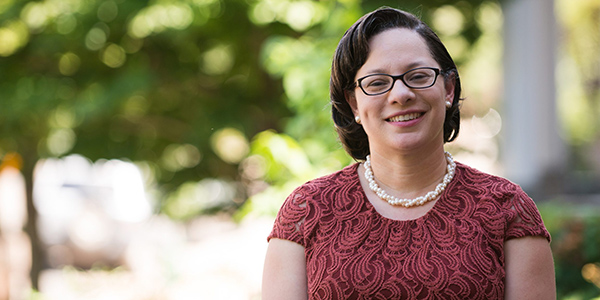As an increasing number of states commit to 100% clean energy standards, policymakers and regulators across the country are being faced with working out the details of how to reach those goals in the next 10, 20 or 30 years.
“Big targets are not enough,” said Virginia Sen. Jennifer McClellan (D), one of the sponsors of the Virginia Clean Economy Act, which has put the state on the road to 100% by 2050. “Which is why I and my fellow lawmakers are committed to making sure we have the right permitting process, tax treatments and regulations for energy storage.”
McClellan’s call to action opened a wide-ranging discussion on state policy during the second day of the Energy Storage Association’s annual Policy Forum on Thursday. Leaders from Arizona, Colorado, Michigan and New Jersey spoke about their top priorities for 2021, ranging from developing new rate structures for distributed energy resources to balancing their states’ response to COVID-19 with moving forward on clean energy goals.
Capturing the full value storage brings to the grid is challenging, said Dan Scripps, chair of the Michigan Public Service Commission, because “it offers a host of resilience and ancillary benefits, but those benefits are widely dispersed. Our regulatory proceedings often remain siloed; so, a comprehensive approach is needed.”
As a first step, Scripps said the MPSC is setting a high bar on integrated resource planning for the state’s utilities to “fully consider all available resources, and we’ve been pretty direct in our orders in terms of what we expect in terms of storage.”
In Colorado, Sen. Chris Hansen (D) said his first priority for this year’s session will be legislation that would grant energy storage equipment an exemption from property taxes, similar to the exemption for other renewable energy equipment. The state is targeting 100% clean energy by 2050, and the tax exemption would “spur rapid investment in storage,” he said. “It’s a big opportunity, and we need it.”
Arizona recently adopted a new tariff aimed at compensating a range of distributed energy resources for the different services they can bring to the grid, Corporation Commission Chairwoman Lea Márquez Peterson said.
“The focus here is really on third-party aggregators, not the utility company,” Márquez Peterson said. “It’s technology-agnostic, so the focus in not on a specific device being used, but rather on the characteristics of the device and the value each brings. So, it really does promote a free-market approach to the deployment of distributed assets.”
New Jersey has also set aggressive goals for renewables and energy storage, said Joseph Fiordaliso, president of the state’s Board of Public Utilities — including 2,000 MW of energy storage by 2030 and 7,500 MW of offshore wind by 2035. But responding to the COVID-19 pandemic has meant balancing priorities, he said.
“We are focused on the clean energy sectors that will bring immediate economic benefits to the state during the crisis, economic benefits through a new, innovative economy,” Fiordaliso said.
The BPU has also recently established an Office of Clean Energy Equity “to ensure that every citizen in the state of New Jersey has the opportunity to participate in the clean energy revolution.”
Bipartisan Blueprint
Enacting and implementing such a broad range of new policies will likely require broad bipartisan support. McClellan laid out the blueprint she and other stakeholders developed to pass major energy legislation in Virginia in a matter of months.
The first piece was bringing together an alliance of environmental groups, business leaders and public health experts, she said. “Everyone had slightly different goals, but we managed to get around a table and work out a game plan from the beginning,” she said.
The bill was also technology-agnostic, with no “silver bullets, but a collection of standards and investments that chart a path to 100%,” McClellan said.
And finally, to build bipartisan support, she said, “We focused every day on the economic aspects of our bill. We stood for job growth and a cleaner Virginia.”





